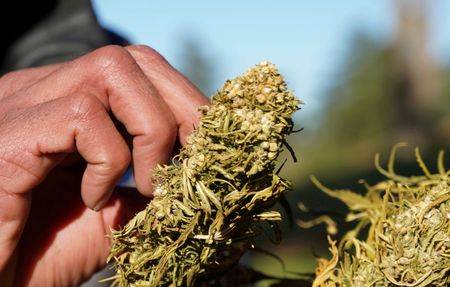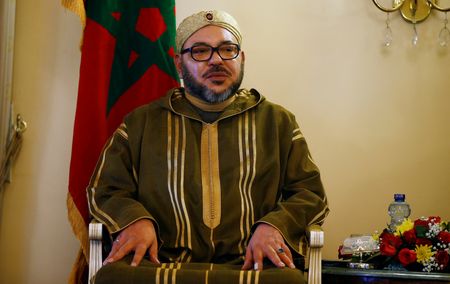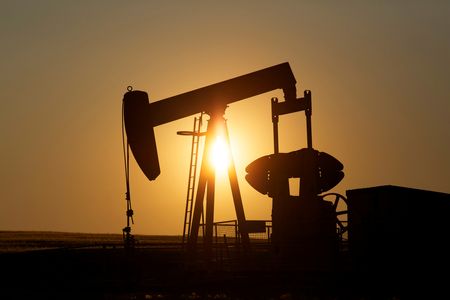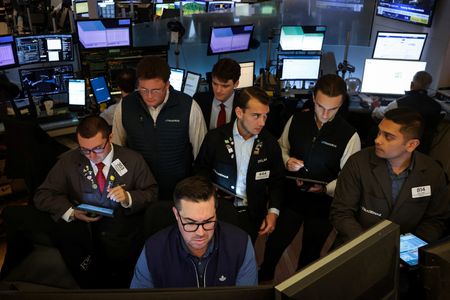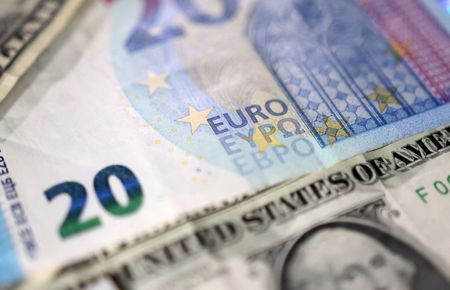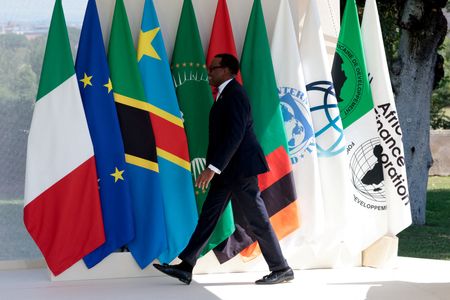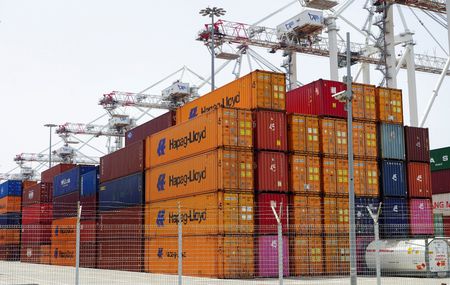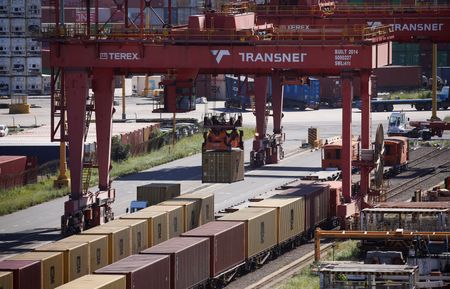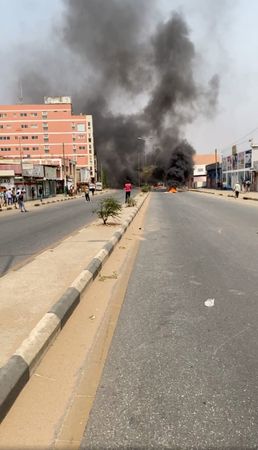By Ahmed Eljechtimi
BAB BERRED, Morocco (Reuters) -Beneath the blazing summer sun, Abderrahman Talbi surveyed the neat rows of flourishing cannabis blooms in compact fields, reflecting on how his life has changed since he joined Morocco’s burgeoning legal cannabis industry two years ago.
Like many farmers in the northern Rif mountains who have long grown the crop illegally, Talbi is relieved that raids and seizures by the authorities are no longer a worry.
“I can now say I am a cannabis farmer without fear,” Talbi told Reuters. “Peace of mind has no price.”
Talbi’s pivot to legal farming is an example of what Morocco, one of the world’s biggest cannabis producers, hoped to achieve when it legalised cultivation for medical and industrial use, but not for recreational purposes, in 2022.
Regulating cannabis farming brought with it hopes for fresh revenue and economic revitalisation in the impoverished Rif region.
The step made Morocco a forerunner among major producing countries and the first in the Middle East and North Africa to join a global trend that has seen countries like Canada, Germany and Uruguay legalise production and use.
It also hoped to lure farmers away from the illegal economy in the restive Rif mountains, where cannabis production has long been tolerated to facilitate social peace.
Al Hoceima, a major city in Rif, saw the largest protests in Morocco in 2016-17 over economic and social conditions.
BLACK MARKET’S LURE PERSISTS
Legalisation efforts have gained traction, with about 5,000 farmers joining the industry this year, from just 430 in 2023, says Morocco’s cannabis regulator, or ANRAC.
And legal production surged to nearly 4,200 tonnes last year, a 14-fold increase over the first harvest in 2023.
Still, the black market remains dominant and lucrative due to demand for recreational use from Europe and regionally in Africa, potentially undermining efforts to fully regulate the sector.
Morocco has 5,800 hectares (14,300 acres) of legally planted land, according to ANRAC. That’s dwarfed by illegal cultivation spanning over 27,100 hectares, Interior Ministry data shows.
While many farmers still choose illicit cultivation, they face the risk of increased crackdowns by authorities, which led to the seizure of 249 tonnes of cannabis resin by September last year, up 48% from all of 2023, according to the Interior Ministry.
Mohammed Azzouzi, 52, spent three years in hiding for cannabis-related charges before receiving a royal pardon along with over 4,800 others last year.
Now, he is preparing for his first legal harvest and hopes to earn more than the 10,000 dirhams ($1,100) he used to make in the illegal economy each year.
RED TAPE
The country’s prohibition on growing cannabis for leisure use, along with bureaucratic red tape, limit legal farming, with every stage of the supply chain requiring a specific license from ANRAC, discouraging many a farmer from making the switch.
A grower who wants to cultivate legally needs to join a licensed cooperative, which buys the farmer’s product and processes it into derivatives or sells the resin to other licensed manufacturers.
Talbi’s cooperative, Biocannat, near the town of Bab Berred, 300 km (186 miles) north of Rabat, bought about 200 tonnes of cannabis last year from some 200 farmers, processing it into resin, supplements, capsules, oils and powders for medical and cosmetic purposes.
About 60 km east of Biocannat, in the main producing area of Issaguen, farmer Mohamed El Mourabit was initially hopeful about the legalisation plan in 2021, but is less so now.
“The process is too complicated,” he said.
And money talks, as well, for many farmers, who are lured by the higher rewards of the black market, despite its risks.
While cooperatives take months to pay farmers about 50 dirhams per kilogram for the raw plant, on the illicit market, processed cannabis resin can fetch up to 2,500 dirhams per kilogram, farmers and activists say.
To close that gap, legalisation advocates say growing for recreational use should be allowed, too.
But it’s not clear whether that will happen soon.
Mohamed Guerrouj, head of ANRAC, said legalising recreational use would only be considered within a medical framework.
“The goal is to develop Morocco’s pharmaceutical industry … not coffee shops,” he said.
(Editing by Alexander Dziadosz and Bernadette Baum)

